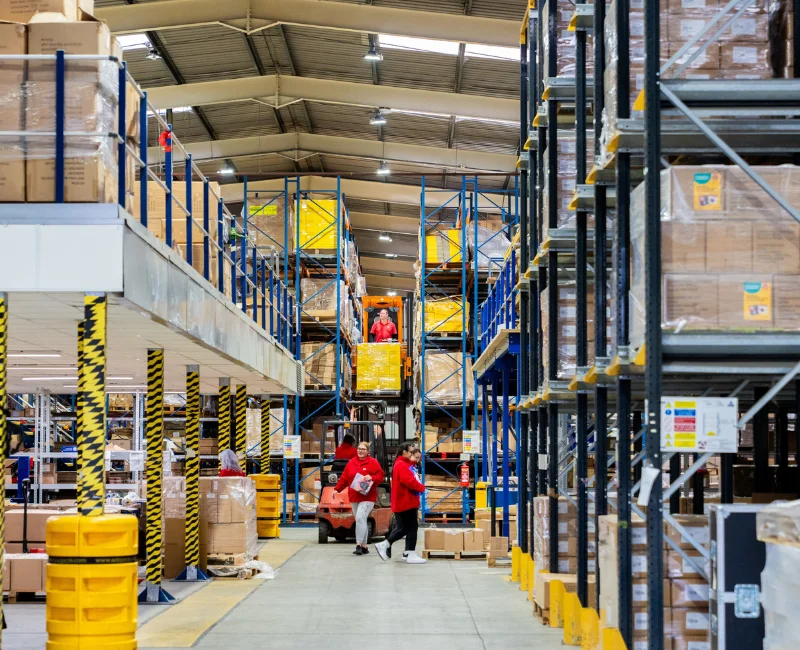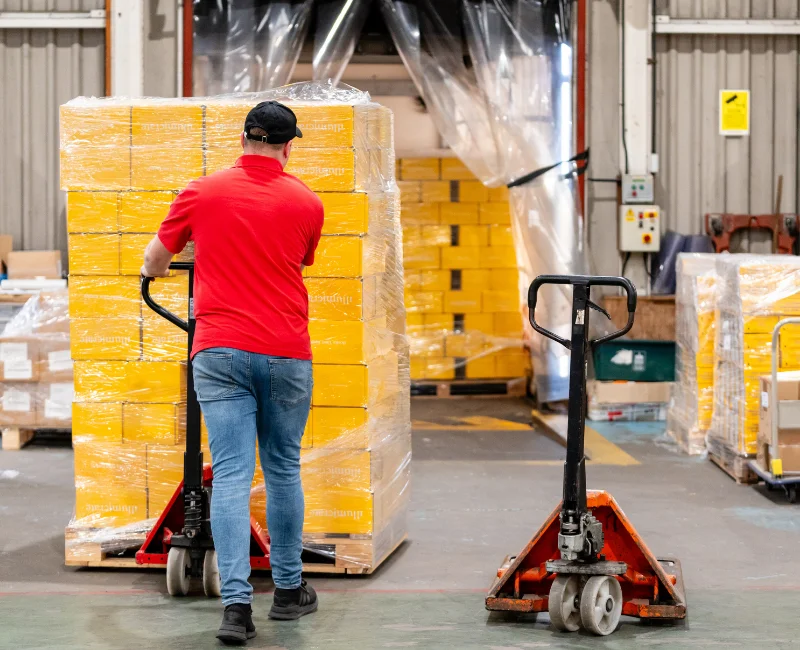With the vaccine seeing success, social restrictions have been lifted for the UK and a clearer picture of the impact of the pandemic and Brexit has emerged. The Economic Statistics Centre of Excellence estimates that around 1.3 million non-UK workers have left the UK during the pandemic. According to BBC News, job vacancies in the UK have surpassed one million for the first time since records began 20 years ago.
Skills shortages and transport disruption are creating huge headaches for businesses of all sizes and negatively affecting the UK supply chain. As a result, employers are rushing to hire workers to fill job vacancies and provide an uninterrupted service to customers. In this article, we explore the current situation in the UK and the impact of labour shortages on the supply chain.

The recruitment crisis
The popular jobs website Indeed recently revealed worrying figures for the UK regarding staff shortages and the ability to attract EU workers. New data has revealed that the number of EU citizens searching on Indeed for jobs in Britain has decreased by 36% compared with average levels in 2019. EU search volumes for low-paid roles in warehouses, hospitality and retail plummeted by 41%.
EU residents who failed to attain settled status prior to Brexit have struggled to access benefits and housing support, prompting thousands to leave the UK and return home. Consequentially, the UK’s post-pandemic economic recovery may be slower than other countries that are not facing the same recruitment challenges.
Response from businesses
The recruitment crisis brought on by recent changes in the UK landscape has caused real issues for the supply chain. Many businesses are struggling to fulfil demand, particularly eCommerce businesses that have seen orders increase during the pandemic. Across the UK, over 5,000 job vacancies are offering signing-on bonuses to attract staff quickly. Even Amazon is stretched thin in the UK, prompting the eCommerce giant to offer £1,000 joining bonuses to UK warehouse staff.
Driver shortages
During the pandemic, eCommerce sales soared, creating a high demand for truck drivers during a time when it was difficult to recruit them. Logistics UK stated that almost 30% of its member firms were severely struggling to recruit drivers. While driver shortages are a global issue, the UK supply chain is being particularly disrupted due to Brexit and the pandemic. In a bid to overcome its supply chain issues, John Lewis plans to increase the salaries of its drivers to expand its workforce.
The UK government has recently produced a new government package designed to streamline the testing process and allow new drivers to enter the industry faster to alleviate the strain faced by the haulage sector. The old testing process involving two separate tests spaced three weeks apart has been replaced by a single, shorter test. This updated process is set to make around 20,000 more HGV driving tests available each year to help more drivers acquire licences.

Other impacts
The shortage of truck drivers and other supply chain personnel is having a knock-on effect on shipping ports around the world, with shipping vessels and their containers sitting at ports for 2.5 times longer than before the pandemic. Port congestion occurs when the ship arrives at the port but cannot be unloaded due to the port already working at capacity. Labour shortages in the UK are causing bottlenecks at key ports and resulting in delays in goods arriving at their destinations.
The shortage of truck drivers has led to supply chain disruptions for numerous industries including the food industry, with the Co-operative Group’s chief executive saying shortages are the worst he’s ever seen. McDonald’s recently announced that it had run out of milkshakes and bottled drinks due to supply problems, while Nando’s has been forced to temporarily close 45 of its outlets due to suppliers struggling to keep up with demand.
With the supply chain under immense pressure, any fluctuations in demand that require scalable production will be difficult to fulfil due to staff shortages. As a result, any spikes in sales that businesses receive could spell trouble for their supply chains. When Black Friday and the Christmas shopping period hit, these extra strains are likely to result in even more goods failing to meet shelves.
EC Group’s deep workforce of committed employees are here to help your fulfilment needs; if you’re looking for help, visit our custom Fulfilment page to see how we can aid your business!
Summary
Until cross-border mobility returns to pre-pandemic levels, the UK is likely to suffer labour shortages and supply chain issues. With Christmas drawing closer, the supply chain will be under increased pressure to fulfil even more demand. As a result, port congestion, backlogs in orders and delays in shipping are likely to get worse before they get better. To combat this, businesses must tightly monitor their supply chains and manage their customers’ expectations to avoid disappointment.
Get in touch today to talk to a member of our skilled team about managing upcoming spikes in demand!



